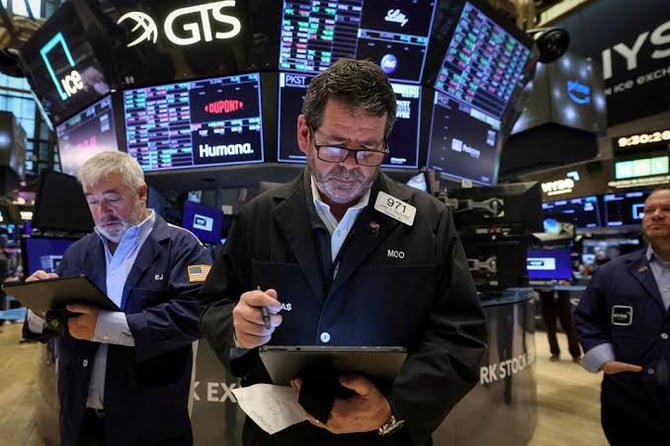The Stock Markets Face Economic Uncertainty in 2024

The stock market's journey in 2024 began with turbulence, wiping away some of the gains achieved during the year-end rally. The S&P 500 index lost 1.4%, while the Nasdaq Composite and the Dow Jones Industrial Average dropped 2.8% and 0.7%, respectively, in the first week of trading.
The sell-off was prompted by Apple’s stock downgrade by Barclays and concerns that the earlier euphoria surrounding potential interest rate cuts might have been unfounded.
Despite hopes for a market rebound in 2023, investors faced a challenging beginning to the year. Inflation stayed above the Federal Reserve's target. Despite these challenges, the US stock market managed to beat expectations and end last year with substantial gains, up 24% for the S&P 500, 14% for the Dow, and a remarkable 43% jump for the Nasdaq.
The national debt of the US government surpassed $34 trillion for the first time, raising concerns over fiscal responsibility and the potential economic implications. In November, job openings in the US fell to their lowest level since March 2021.
What does this mean for me?
Market analysts express caution, pointing out that consumer savings might not be able to continue supporting the heated economy now that interest rates have hit multi-decade highs.
The upcoming US election also adds a layer of uncertainty, although historical data suggests that the stock market tends to perform well during the fourth year of presidential terms.
Financial experts note that investors' exposure to safe consumer staples stocks remained relatively high compared to economically volatile consumer discretionary stocks, indicating ongoing fear and caution. However, some fund managers maintained optimism, having been bullish on stocks since January 2022.
More News
.webp)
Canada Shields Steel and Lumber Industries From Tariffs
6 hours ago

Trump Drops Selected Tariffs in Response to Inflation Pressures
2 days ago

Tariffs on Mexico Test Nuevo Leon’s Industrial Momentum
6 days ago

US Moves to Ease Latin American Tariffs as Food Inflation Mounts
1 week ago

Japan Faces First GDP Shrinkage in Six Quarters as Tariffs Bite
1 week ago

India’s Inflation Dip Strengthens Case for RBI Easing
2 weeks ago

Europe Rallies as Shutdown Eases, Earnings Impress
2 weeks ago

Germany’s Trade Surplus Slides as Imports Outpace Exports
2 weeks ago